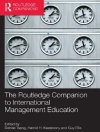Do notions of community remain central to our sense of who we are, or can we see beyond community closures to a human whole?
This volume explores the nature of contemporary sociality. It focuses on the ethical, organisational and emotional claims and opportunities sought or fashioned for mobilising and evading social collectivities in a world of mobile subjects.
Vered Amit and Nigel Rapport present an examination of the tensions and interactions between everyday forms of fluid fellowship, culturally normative claims to identity, and opportunities for realising a universal humanity.
Table des matières
Acknowledgements
Prologue: The Book’s Structure
Nigel Rapport and Vered Amit
PART I: COMMUNITY AND DISJUNCTION: THE CREATIVITY AND UNCERTAINTY OF EVERYDAY ENGAGEMENT
Vered Amit
1. Community as ‘Good to Think With’: The Productiveness of Strategic Ambiguities.
2. Consociation and Communitas: The Ambiguous Charms of the Quotidian
3. Disjuncture as ‘Good to Think With’
4. Mobility and Cosmopolitanism: Frustrated Aspirations towards disjuncture.
Notes
References
PART II: COSMOPOLITANISM: ACTORS, RELATIONS AND INSTITUTIONS BEYOND THE COMMUNITARIAN
Nigel Rapport
Preamble
5. Introduction: The Space of Cosmopolitanism, and the Cosmopolitan Subject
6. Cosmopolitan Living: People of the Air and Global Guests
7. Cosmopolitan Learning: Diffusion, Openness and Irony
8. Cosmopolitan Planning: Anyone, Society and Community
9. Epilogue: Cosmopolitanism and Culture
Notes
References
PART III: DIALOGUE
10. Amit Responds to Rapport: When cosmopolitan rights are not enough
11. Rapport Responds to Amit: On the analytical need to deconstruct ‘community’
Index
A propos de l’auteur
Nigel Rapport is Professor of Anthropological and Philosophical Studies at the University of St Andrews. He is author of Community, Cosmopolitanism and the Problem of Human Commonality (Pluto, 2012) and The Trouble with Community: Anthropological Reflections on Movement, Identity and Collectivity (Pluto, 2002).












